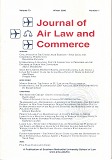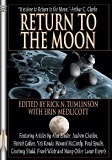FAQ #25: Who came up with this idea?
Alan Wasser is the originator of the idea of using land claim recognition to make privately funded space settlements potentially profitable, and therefore possible in our lifetime. He is the author of numerous articles on the subject of space property rights, in such publications as The Explorers Journal, (official magazine of the Explorers Club), Space News, Ad Astra, Space Governance, Space Times, and Space Front among others. Space Governance published a rough draft of the proposed legislation.
He was the first to propose that the first human settlement on the Moon might use a permanently sun-lit mountain top at the moon's south pole, the existence of which was later confirmed by the Clementine mission. Much of Ben Bova's novel Moonrise takes place on that lunar mountain, which Bova named "Mt. Wasser".
Alan is a former broadcast journalist at ABC News and CBS News, who then owned and operated a successful international business, which he sold. He was the Chairman of the Executive Committee (CEO) of the National Space Society. Alan was also a member of the Board of Directors of ProSpace, and is an Advocate of the Space Frontier Foundation.
SMU Law School's Journal of Air Law & Commerce, the oldest and most respected law journal in its field, published an article Alan co-wrote with Douglas Jobes, entitled "Space Settlements, Property Rights, and International Law: Could a Lunar Settlement Claim the Lunar Real Estate It Needs to Survive?". For more about him, personally, see Alan's bio.
But this project is much more than the work of just one person. Many others have contributed a great deal to it, deserving thanks and credit for supplying key ideas, explaining the fine points of international law, promoting the idea, helping with writing and editing or in other ways, and even by attacking the plan and exposing weak points that needed fixing. Among the many who contributed are Douglas Jobes, David Wasser, Colin Doughan, Eric Rice, Scott Pace, Marianne Dyson, Glenn Reynolds, Gordon Woodcock, Declan O'Donnell, Ray Collins, Arjen Van Ballegoyen, Bryce Walden, Leonard David, Lawrence Roberts, Ben Bova, Rick Tumlinson, Arthur Smith, Carol Kochman, Toni Sonet, Art Dula, Robert Zubrin, Jim Bennett, Bob Werb, Charles Wood, Fred Ordway, Jim Benson, Pat Bahn, Peter Kokh, Grant Davis, Ed Wright, Alford Lessner and Charles Miller. Sincere apologies to the many others who should have been mentioned but have been accidentally overlooked.
Alan welcomes your comments on the proposed Lunar Land Claims Recognition concept. He can be reached by email.
A personal note from Alan Wasser on the subject of credit: Although I originated this concept, the greatest credit should go to whoever gets it enacted into law, which I have not been able to do. Someday, someone will come along with the charisma, wisdom, perseverance, position and/or connections to convert this from an idea to reality. If you are the person who can do that, you deserve to have your name attached to the plan, way ahead of mine. If you can do that, there will be settlers living on the Moon and perhaps Mars, in your lifetime, and you will richly deserve the statue they will build to you in the center of the settlement. Would you like to make the history books? Here's your chance! - Alan Wasser

Questions & Answers about Lunar Land Claims Recognition
Note: The first 25 FAQs below are reprinted from the Space Settlement Initiative ![]() website.
website.
What is the real purpose of enacting a Lunar land claims recognition law?
What does international law say about private property ownership in space?
Can there be property ownership without national sovereignty?
What if other nations refuse to recognize land claims in space?
Why not allow smaller, limited land claims for easier steps than settlement?
Could lunar land really be worth enough money to make a difference?
What conditions should the US set for recognition of a claim?
How much land should a settlement be able to claim... and why?
Are the weaknesses and compromises in this plan likely to be permanent?
Could other sources of revenue be enough without land claims recognition?
What effect would this have on NASA and the aerospace companies?
More FAQs
The FAQs above cover basic questions about Lunar Land Claims Recognition. The following questions address more advanced issues.
If we really went to the Moon in 1969, why aren't we there now?
What were the assumptions before the Outer Space Treaty, (e.g. Robert Heinlein)?
Will changing how NASA works bring the taxpayers back on board?
Could this law force the US to recognize a foreign government's Lunar land claim?
Would Article VI of the Outer Space Treaty prohibit Lunar land claims recognition?
| Back from Who came up with this idea... to Frequently Asked Questions (FAQs) Back from Who came up with this idea... to the Space Settlement Institute home page |




